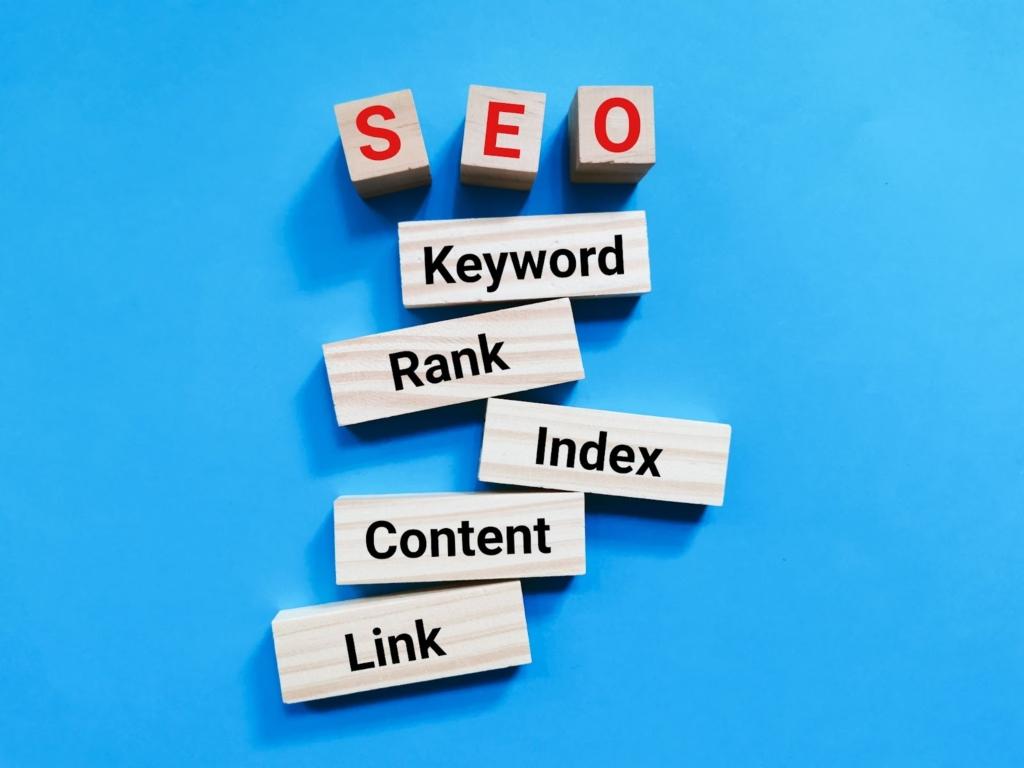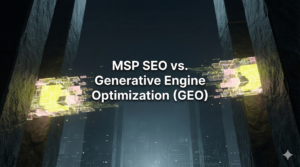
Looking for top-quality SEO services? Book a free consultation with us and tell us your needs.
Key Points
- Content Marketing and SEO are important digital marketing strategies for increasing a website’s visibility in search engine results.
- SEO optimises a website’s content, structure, and links, ultimately improving organic search results.
- Content marketing aims to create valuable content that helps to attract and engage an audience and, in turn, drives traffic and conversions.
- Content marketing and SEO can work together to create a well-rounded approach to digital marketing, providing both short-term and long-term benefits. For businesses in industries like cybersecurity, implementing a specialised cybersecurity SEO strategy can significantly improve search visibility and organic traffic.
- Businesses can measure success by tracking their website traffic, conversion rates, and other metrics to make data-driven decisions.
- By understanding the strengths and limitations of both strategies, businesses can choose the right approach for their marketing goals and target audience.
Content Marketing and SEO: Which Should You Choose?
When it comes to communicating with a targeted audience, content marketing and Search Engine Optimisation (SEO) are two popular and remarkably effective strategies.
Content marketing involves creating and disseminating valuable, relevant content that attracts and engages a specific audience. Conversely, SEO optimises website content to improve its ranking in Search Engine Results Pages (SERP). Both are critical to a successful digital marketing strategy, but it’s important to understand how they differ and how they can work together.
This article will explore the differences between content marketing and SEO, their benefits, and how to use these to create a powerful digital marketing strategy.

What is Content Marketing?
Content marketing aims to educate, entertain, and engage in a way that brings profitable customer action, whether that means increasing sales, growing a subscriber list, or improving customer retention. Here is a complete breakdown of what constitutes content marketing.
If you’re seeking expert support in SaaS content marketing, partnering with a specialized agency can ensure that your strategy is tailored to drive growth and engagement.
Content Marketing Strategy
Content marketers need to keep several things in mind when pursuing their goals. These include:
- Defining your target audience: Understanding your target audience is essential for developing material that will appeal to them. Know their interests, needs, and pain points and then create targeted content.
- Creating a content strategy: Content strategies outline the goals, objectives, and tactics for creating and distributing content. It includes an editorial calendar, content formats, and distribution channels.
- Producing high-quality content: From creating blog posts, videos, social media posts, infographics, and other content formats, the aim is to build trust and loyalty with content tailored to your target audience.
- Distributing content: Once you’ve created high-quality content, you need to distribute it to your target audience, which can be through social media, email marketing, influencer marketing, and other distribution channels.
- Measuring results: To ensure that your content marketing efforts are successful, you must measure the results by tracking website traffic, engagement rates, lead generation, and other Key Performance Indicators (KPIs).
The Benefits of Content Marketing
Targeting your brand’s audience through a solid content marketing approach generates numerous positives. They include:
- Increased brand awareness: Content marketing gives your brand exposure, giving audiences a level of familiarity with your brand’s products, services, and values.
- Improved customer engagement: You can create valuable content to engage your audience and build trust.
- Higher search engine rankings: Content marketing can improve rankings by creating content relevant to your target keywords.
- Increased website traffic: By creating and distributing high-quality content, you can attract more website traffic and improve your website’s visibility.
- Improved customer retention: You can improve customer satisfaction and retention by creating content that addresses your customers’ needs and pain points.

What is SEO?
SEO is a digital marketing strategy that aims to improve a website’s ranking in SERPs. It involves using various techniques to make a website more attractive to search engines, increase its visibility in the organic search results, attract more traffic to the website, and increase conversions. By achieving this, businesses can attract customers, generate more leads, and increase sales.
SEO Strategy
SEO is not a one-way street, as there are numerous ways to implement an SEO strategy. These include:
- Keyword research: This entails identifying the keywords and phrases potential customers search for and using them in the website’s content.
- On-page optimisation: Optimise the website’s content, headings, title tags, meta descriptions, and images to make them more attractive to search engines.
- Technical optimisation: This includes optimising the website’s technical aspects, such as site speed, mobile-friendliness, URL structure, and schema markup.
- Link building: High-quality links from other websites increase your website’s authority and improve its search engine ranking.
- Local SEO: This calls for optimising the website for search queries, including Google My Business listing, reviews, and citations.
The Benefits of SEO
There are several benefits of SEO, including:
- Increased visibility: Improving a website’s ranking in search results can increase its visibility to potential customers.
- Increased traffic: attracting more organic traffic to a website can increase the number of leads and sales generated.
- Cost-effective marketing: SEO is an affordable marketing strategy that can provide long-term benefits.
- Improved user experience: Optimising a website for search engines can also improve visitors’ experience, making it easier for them to find what they’re looking for and stay on the website longer.
- Competitive advantage: Businesses that invest in SEO can gain a competitive advantage over those that don’t by attracting more traffic, generating more leads, and increasing sales.
If you’re seeking expert guidance on crafting compelling content that aligns with SEO best practices, consider partnering with a SaaS copywriting agency to maximize your content’s impact.
The Relationship Between Content Marketing and SEO
A successful digital marketing strategy requires the combination of multiple tactics to achieve the desired outcome. In the case of content Marketing and SEO, both strategies share common elements that contribute to their effectiveness. Both strategies rely on keywords, high-quality content, and an excellent user experience to achieve their objectives. And for a truly successful digital marketing campaign, a combination of content Marketing and SEO is ideal for reaching a broader audience, improving visibility, and driving conversions.
Using Keywords For Content Marketing and SEO
Keywords are fundamental to both content marketing and SEO. In content marketing, it’s about understanding the search intent behind the keywords to tailor content to answer the user’s query, provide value, and drive engagement. Whereas in SEO, keywords are used to optimise website content, meta tags, and other on-page elements to improve the website’s ranking and visibility.
Creating Quality Content With Content Marketing and SEO
Quality content is crucial in both content Marketing and SEO. In content Marketing, it is necessary to create high-quality content that meets the needs and interests of the target audience. The more useful, informative, and engaging the content, the more likely it is to be shared, linked to, and referred to by other websites. In SEO, quality content is essential for search engines to understand what the website is about and rank it higher in the search results.
Optimising User Experience Through Content Marketing and SEO
User experience (UX) is an integral part of both content Marketing and SEO. Content Marketing aims to create a positive experience for the target audience by creating and distributing valuable, relevant, and consistent content that addresses their pain points, needs, and interests. SEO, on the other hand, considers user experience when ranking websites in search results. Search engines favour websites that are fast, easy to navigate, and offer relevant and useful content. Therefore, businesses must ensure that their website offers a great user experience to both the target audience and search engines.
The Differences Between Content Marketing and SEO
Both content marketing and SEO are important strategies in digital marketing, but they’re not cut from the same cloth. By understanding the differences, businesses can make informed decisions about which strategy to use based on their goals and target audience.
Content For Audience Or Search Engines?
Both content marketing and SEO aim to drive traffic to websites and pinpoint a target audience’s needs and interests. However, they have different approaches. The key focus of SEO is, in fact, more on search engine requirements for ranking and domain authority, so it is content for search engines first. Content marketing is also about traffic and performance metrics, sharing a similar end result, but it’s much more about relationship building with an audience than SEO in nature.
Learn More: Do webflow and SEO work together well?
Is the Content Format Different?
Content marketing describes content across the board, regardless of medium or channel. It could be images, videos, or text. SEO’s strictly written content, whether it’s landing pages, articles, or product descriptions. So while content marketing may include written content, it describes a much broader set of content types than SEO.
How Often Do You Have To Create Content?
Content marketing typically requires a steady stream of new content to keep the audience engaged and returning for more. Businesses need to create and publish content regularly to maintain momentum. Conversely, SEO is more about creating high-quality, evergreen content that will continue to rank well over time. While businesses should update SEO content periodically, it does not require the same level of ongoing content creation as content marketing.
How Long Do Content Marketing and SEO Take To Show Results?
Content marketing tends to be a longer-term strategy, building relationships with the audience over time and resulting in increased visibility and brand awareness. Significant results from content marketing efforts can take several months to a year. On the other hand, SEO can show results more quickly, with the potential to rank on the first page of search results within a few weeks or months of creating optimised content.
Measuring the Success of SEO and Content Marketing
The success of content marketing is typically measured through engagement metrics, such as social media shares, comments, and time on site. These metrics indicate how well the content performs and whether it effectively builds brand awareness. In contrast, SEO success is measured primarily through rankings, click-through rates, and organic traffic.

How Content Marketing and SEO Work Together
Content marketing and SEO are not mutually exclusive strategies. They can work together to provide even greater benefits for businesses. Thus, when you combine the two, you can immediately start seeing a handful of positive effects:
- Increased visibility: By combining both strategies, businesses can increase their visibility in search results. A well-crafted content marketing strategy can attract links and shares, boosting a website’s SEO ranking.
- Higher quality leads: Content marketing can attract more qualified leads and interest in a brand’s product or service. By combining this with SEO, businesses can improve the chances of those leads finding the website and converting.
- Better user experience: Good content marketing is designed to engage and inform users, which can result in a better user experience. By improving the user experience, businesses can also improve their SEO ranking.
When it comes to expanding your digital reach, combining content marketing and SEO is a proven way to drive more traffic and increase visibility. For businesses that want to scale globally, it’s crucial to consider strategies specifically tailored for international markets. International SEO services can help ensure your website is optimized for different regions, allowing you to reach a broader audience and improve your rankings in various countries.
Content Marketing or SEO: Which is Better?
Both content marketing and SEO are vital components of any business’s digital marketing strategy, and it shouldn’t be a matter of picking and choosing. It is crucial to understand when to use each strategy, with content marketing ideal for brand awareness and establishing relationships and SEO suited for increasing online visibility and driving sales. Ultimately, combining both strategies allows businesses to maximise their marketing efforts and achieve their goals effectively.
At NUOPTIMA, we deeply understand the challenges of building a profitable and thriving business. As seasoned business owners, we are proud to offer transparent growth services specialising in organic and paid content marketing across multiple channels, from Google to TikTok. We’ve generated millions in profits and have invested significant time and resources into developing our SEO expertise, assisting other companies in avoiding mistakes and achieving the best possible results. Get in touch with us if you are looking for a winning SEO strategy to incorporate into your brand.



